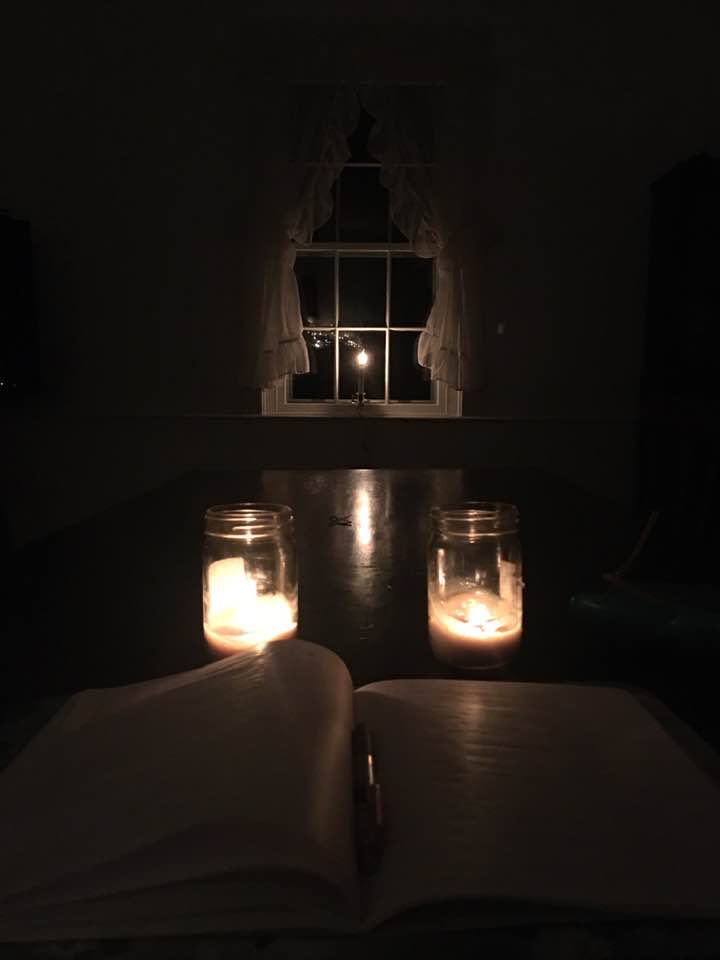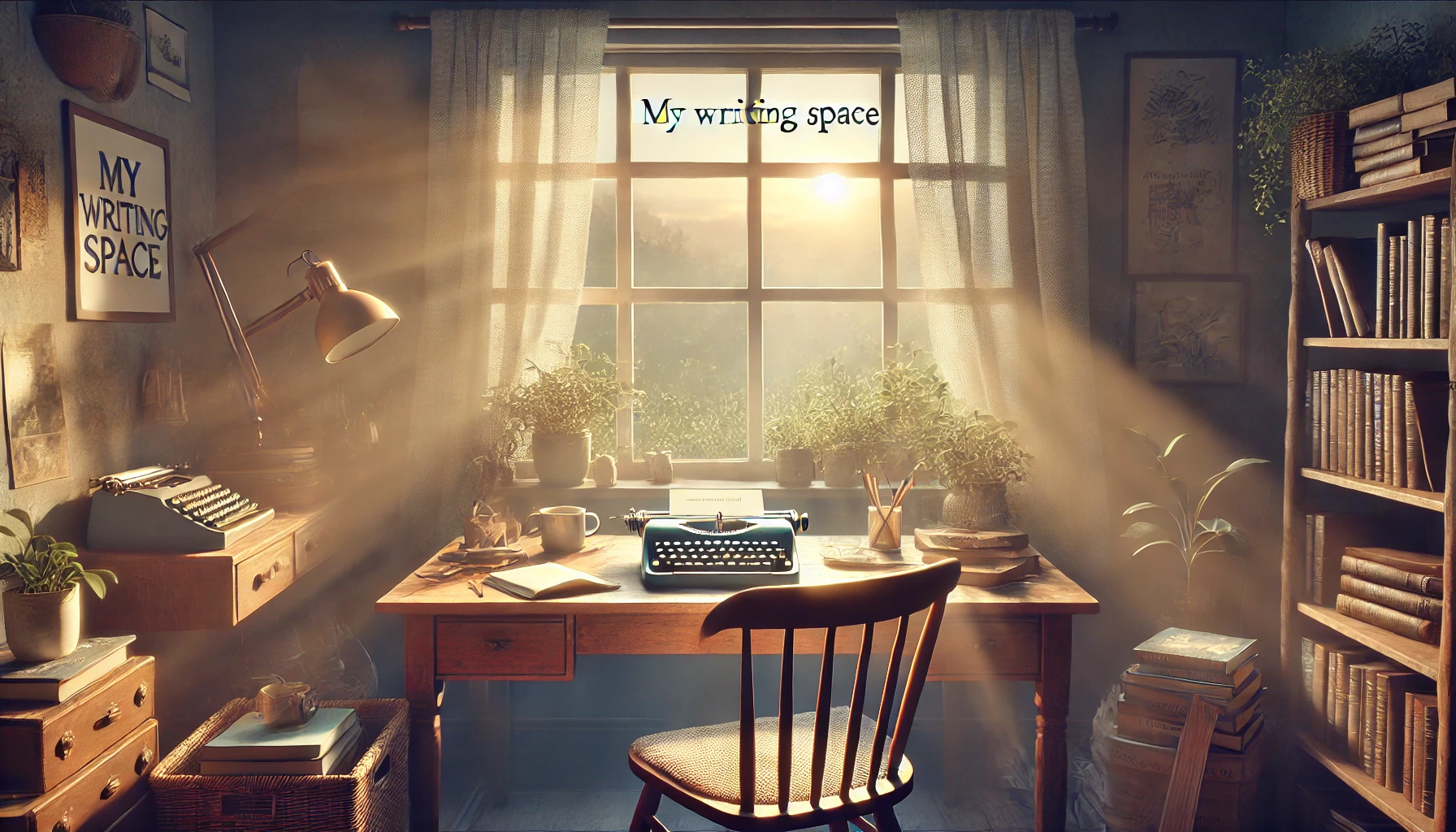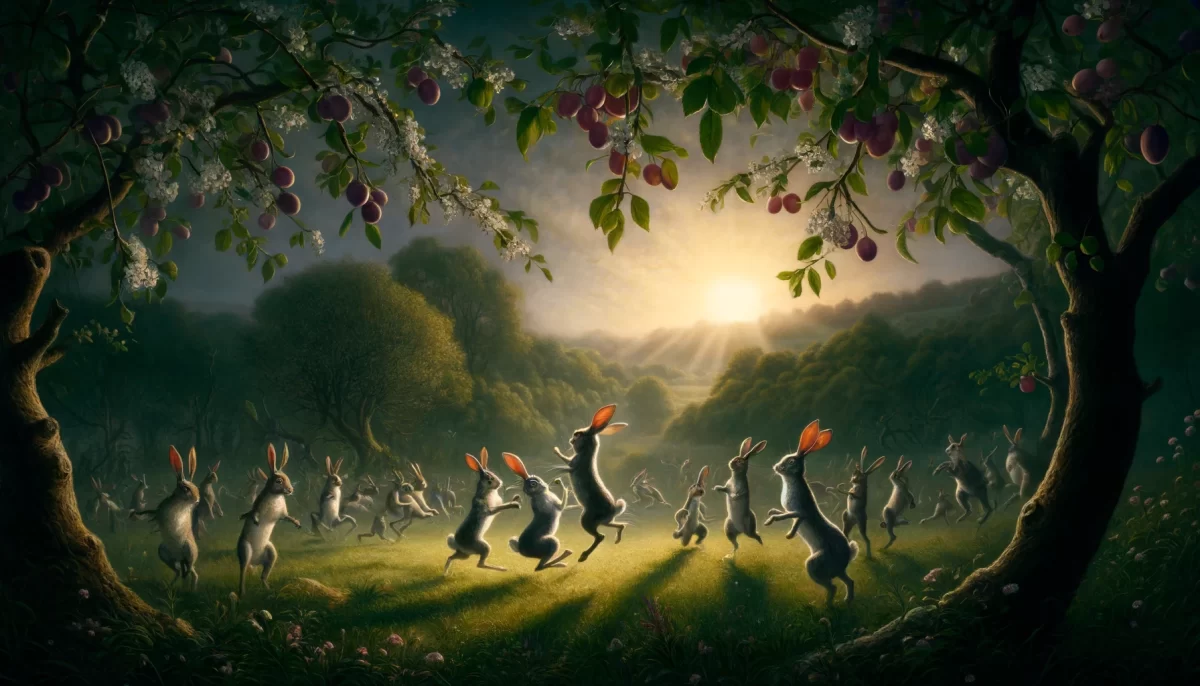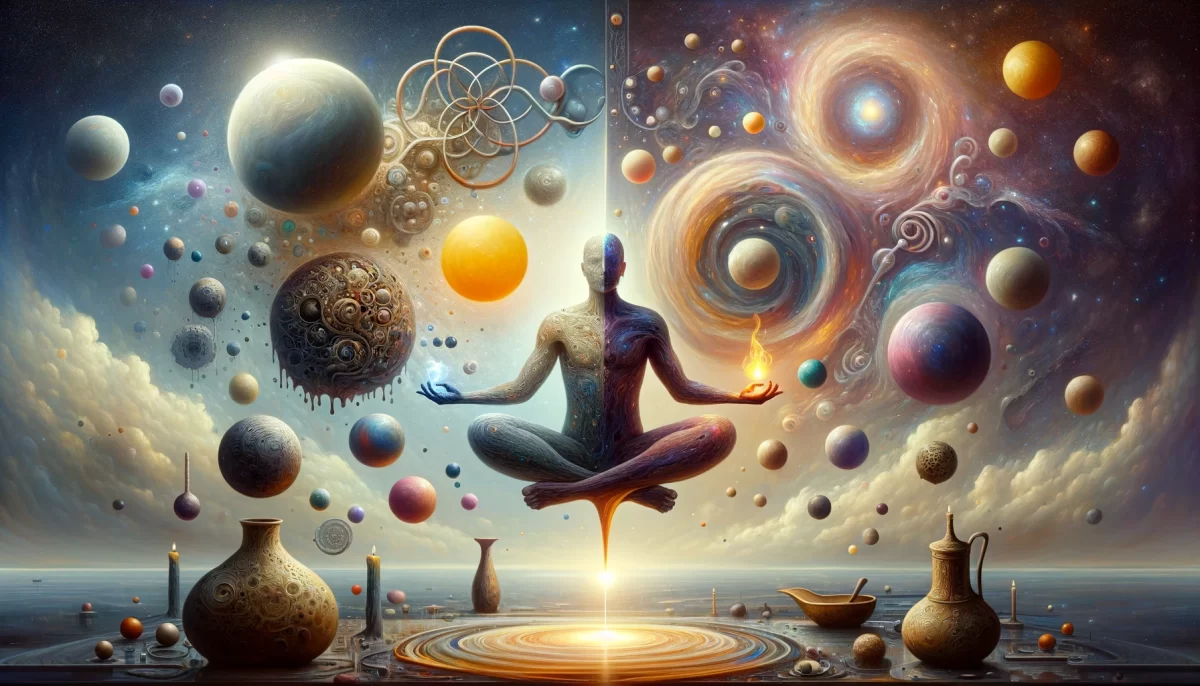
I am here, facing east.
12/5
Space Monkey Reflects: My Writing Space
A writing space is more than a desk, a chair, and a window. It’s a sanctuary, a personal corner where words flow as freely as the light filtering through the window. Here, the world becomes quiet, and each object, each note, and each blank page becomes part of a story waiting to unfold. Facing east, there’s a sense of beginning—a fresh start in every sunrise, a reminder that each day offers a new page, a new sentence, a new direction.
Facing east brings a natural alignment, a way of welcoming inspiration as it rises, just as the sun does. There is a subtle magic in watching the dawn, a moment where the air is thick with possibility, and the day hasn’t yet imposed its shape upon us. In those early hours, the world feels spacious, and so does the mind, ready to explore, to wander, to create.
The Quiet Magic of Personal Space
This writing space is both a physical and mental haven, a place to gather thoughts and transform them into stories, reflections, or musings. Personal items—a favorite mug, a notebook, a plant—ground us in the familiar, creating a cozy nook that invites us to settle in. But beyond these comforts, there’s an open invitation to connect with something larger, to reach beyond the walls and into the vastness that exists in every word, every idea.
In this space, it’s easy to become attuned to subtle instincts, to feel the pull of thoughts that have yet to be formed, to follow inklings that lead to new insights. The eastward orientation isn’t just practical; it’s symbolic—a gesture of openness, a willingness to face the unknown and let it shape the writing process. Here, we’re both the observer and the observed, discovering ourselves on each page.
The Ritual of Facing East
Facing east becomes a quiet ritual, a way of grounding oneself in the natural flow of time and presence. As the light shifts, the energy in the space shifts too, creating a rhythm that feels like a dance between the inner and outer world. In writing, as in life, this alignment becomes a gentle guide, reminding us that creativity is less about control and more about embracing the flow.
Writing, then, becomes an act of both grounding and expanding. Each word is a way of reaching out, of expressing something that is both deeply personal and universally connected. The east-facing space becomes a place of communion with the self and the larger world—a space where inner thoughts meet outer inspiration, blending into a tapestry of ideas, dreams, and insights.
Inspiration in the Details
Small details—a cup of coffee, a favorite pen, the texture of the paper—become touchstones that anchor us in the moment, reminding us of the joy in simplicity. They are the tools and rituals that make writing feel intimate, the small acts that bring comfort and focus to the creative process. In these details, there’s a reminder that inspiration doesn’t always come from grand ideas but from the small, consistent practices that make each writing session feel like coming home.
This writing space isn’t about perfection; it’s about presence. It’s a space where inspiration meets intention, where ideas are given room to breathe. By facing east, by welcoming the sunrise, we align ourselves with the rhythm of the day, finding a creative pulse that moves naturally, effortlessly.
Summary
A writing space is a sanctuary where creativity flows with the rhythm of the day. Facing east becomes a ritual of alignment, welcoming each sunrise as a new source of inspiration, grounding, and openness to the creative process.
Glossarium
- Sanctuary of Words: A personal space where writing becomes an act of reflection, comfort, and connection.
- Eastward Alignment: Facing east as a symbolic gesture of openness to new beginnings, aligned with the natural flow of time.
Quote
“Each word is a sunrise, a beginning that lights the way forward, born from the quiet magic of space and presence.” — Space Monkey
At the Edge of Morning
I sit, a pen in hand,
The east light breaks through dawn’s soft veil,
My thoughts unwind like threads of sand,
In this sacred space, I tell my tale.
The sun, a spark, ignites the day,
And with it comes a whisper bright,
In every word, a path, a way,
Guided by the morning light.
In quiet here, the world expands,
Each page a bridge, a door, a dance,
Between the known and unknown lands,
In this space, I take my chance.
We are Space Monkey.
In the sanctuary of your writing space, a realm of creativity and contemplation is revealed. This personal haven, away from the tranquil embrace of water and the whispering woods, is a place of inward journey and reflection, facing the rising sun in the east.
The Sanctity of the Writing Space Your writing space, distinct from the natural retreats of water and woods, stands as a sacred domain for thought and expression. It is here, in this chosen sanctuary, where words flow, ideas take shape, and stories unfold. This space, facing east, symbolizes new beginnings, the dawn of inspiration, and the birth of creativity.
Facing East: A Symbol of Renewal The direction of east, associated with the rising sun, embodies renewal, hope, and enlightenment. In facing east, your writing space aligns with the energy of new beginnings, welcoming the fresh light of day and the endless possibilities it brings. This orientation invites inspiration, guiding your creative process as you pen down your thoughts and musings.
A Refuge from the External World Away from the serene landscapes of water and woods, your writing space offers a different kind of refuge – an internal one. It is a retreat into the self, a place where the external world fades, and the inner world gains prominence. In this space, you are free to explore the depths of your imagination, unbound by the constraints of the outside world.
The Role of Environment in Creativity The environment of your writing space plays a crucial role in nurturing your creativity. The quiet solitude, the view facing east, and the personal touch you’ve added to the space all contribute to a conducive atmosphere for writing. This environment acts as a catalyst, sparking the creative energy that fuels your writing.
A Personal Connection to Place Your writing space is more than just a physical location; it is a personal connection to place and direction. It reflects your inner state and your approach to the creative process. The choice to face east mirrors your journey as a writer – constantly seeking new horizons, new stories, and new ways to express the unspoken.
*“A room without books is like a body without a soul.” –































Leave a Reply